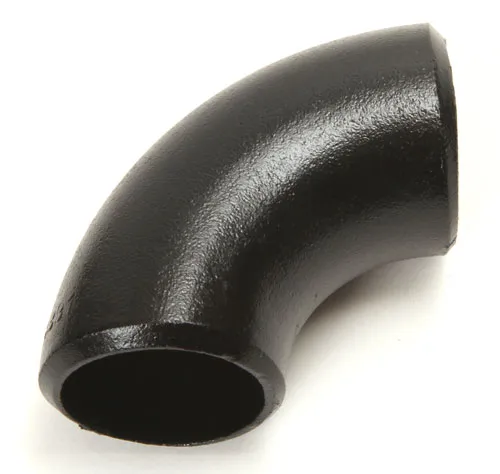-
Cangzhou Yulong Steel Co., Ltd.
-
Phone:
+86 13303177267 -
Email:
admin@ylsteelfittings.com
- English
- Arabic
- Italian
- Spanish
- Portuguese
- German
- kazakh
- Persian
- Greek
- French
- Russian
- Polish
- Thai
- Indonesian
- Vietnamese
- Zulu
- Korean
- Uzbek
- Hindi
- Serbian
- Malay
- Ukrainian
- Gujarati
- Haitian Creole
- hausa
- hawaiian
- Hebrew
- Miao
- Hungarian
- Icelandic
- igbo
- irish
- Japanese
- Javanese
- Kannada
- Khmer
- Rwandese
- Afrikaans
- Albanian
- Amharic
- Armenian
- Azerbaijani
- Basque
- Belarusian
- Bengali
- Bosnian
- Bulgarian
- Catalan
- Cebuano
- China
- China (Taiwan)
- Corsican
- Croatian
- Czech
- Danish
- Esperanto
- Estonian
- Finnish
- Frisian
- Galician
- Georgian
- Kurdish
- Kyrgyz
- Lao
- Latin
- Latvian
- Lithuanian
- Luxembourgish
- Macedonian
- Malgashi
- Malayalam
- Maltese
- Maori
- Marathi
- Mongolian
- Myanmar
- Nepali
- Norwegian
- Norwegian
- Occitan
- Pashto
- Dutch
- Punjabi
- Romanian
- Samoan
- Scottish Gaelic
- Sesotho
- Shona
- Sindhi
- Sinhala
- Slovak
- Slovenian
- Somali
- Sundanese
- Swahili
- Swedish
- Tagalog
- Tajik
- Tamil
- Tatar
- Telugu
- Turkish
- Turkmen
- Urdu
- Uighur
- Welsh
- Bantu
- Yiddish
- Yoruba

Nov . 15, 2024 16:29 Back to list
api x52
Understanding API X52 A Critical Standard for Pipeline Engineering
In the realm of pipeline engineering, the specifications and standards that guide the construction and operation of pipelines are crucial for ensuring safety, reliability, and efficiency. One of the pivotal standards in this field is API X52, a specification set forth by the American Petroleum Institute (API) for the manufacturing of line pipe. This standard is widely utilized in the oil and gas industry, where pipeline integrity is paramount due to the hazardous nature of the materials they transport.
What is API X52?
API X52 refers to a particular grade of steel pipe that is designated for use in the transportation of oil and gas. The X in X52 designates the pipe’s yield strength, which is 52,000 psi (pounds per square inch). This level of strength makes it suitable for pipelines that must endure significant internal pressures while maintaining structural integrity. The API 5L standard includes several grades, with X52 being one of the more commonly used options due to its combination of strength, ductility, and weldability.
Key Characteristics of API X52
1. Material Composition API X52 steel pipe typically comprises a carbon content between 0.05% to 0.25%, with controlled amounts of manganese, phosphorus, sulfur, and silicon to enhance its mechanical properties. This specific chemical makeup contributes to the pipe's ability to withstand high pressures and resist corrosion.
2. Mechanical Properties The yield strength of 52,000 psi is complemented by a minimum tensile strength of 63,000 psi. These mechanical properties ensure that the pipe can manage the high stress associated with transporting fluids under pressure. Moreover, X52 pipe offers good toughness, allowing it to resist the impacts and strains encountered during installation and operation.
3. Welding and Fabrication The design of API X52 allows for effective welding, which is critical for creating continuous pipelines. The weldability of X52 steel ensures that pipes can be joined without compromising integrity, thus minimizing the risk of leaks or failures.
Applications of API X52
api x52

API X52 pipes are primarily used in the oil and gas industry, where they facilitate the transportation of crude oil, natural gas, and other hydrocarbon products. They can be employed in various environments, including onshore and offshore applications. Due to their high durability, X52 pipes are ideal for long-distance pipelines that traverse challenging terrains and climates, ensuring that energy resources can be moved efficiently and safely across vast distances.
In addition to energy transport, X52 pipes are also suitable for water transmission and other industrial applications where high pressure and strength are required. Their versatile nature makes them a staple choice in engineering projects targeting significant infrastructure development.
Compliance and Standards
The API X52 pipe must meet stringent compliance standards as outlined in the API 5L specification. This includes requirements for chemical composition, mechanical properties, and testing methodologies. Manufacturers must provide documentation and certifications that demonstrate adherence to these standards, ensuring the end-users that the pipes will perform as required over their service life.
Challenges and Considerations
Despite the advantages of using API X52, there are challenges associated with its application. For instance, the construction of pipelines using X52 steel may involve higher costs due to the need for specialized welding techniques and materials to ensure integrity. Furthermore, environmental considerations, such as corrosion and erosion, must be addressed through appropriate coating and cathodic protection systems.
As pipeline projects increasingly focus on sustainability and reducing environmental impact, engineers and operators must incorporate best practices to minimize potential risks associated with pipeline failures. This includes regular inspection and maintenance protocols to ensure the ongoing reliability of X52 pipelines in service.
Conclusion
API X52 plays a vital role in the infrastructure of the oil and gas industry, providing a standard for the production of robust and durable line pipes. By understanding its specifications, applications, and the challenges it presents, stakeholders can make informed decisions regarding pipeline construction and maintenance. As the demand for safe and efficient transportation of energy resources continues to grow, the importance of adhering to standards like API X52 cannot be overstated, ensuring the integrity and safety of critical pipeline systems worldwide.
Latest news
-
ANSI 150P SS304 SO FLANGE
NewsFeb.14,2025
-
ASTM A333GR6 STEEL PIPE
NewsJan.20,2025
-
ANSI B16.5 WELDING NECK FLANGE
NewsJan.15,2026
-
ANSI B16.5 SLIP-ON FLANGE
NewsApr.19,2024
-
SABS 1123 FLANGE
NewsJan.15,2025
-
DIN86044 PLATE FLANGE
NewsApr.19,2024
-
DIN2527 BLIND FLANGE
NewsApr.12,2024
-
JIS B2311 Butt-Welding Fittings LR/SR 45°/90° /180°Seamless/Weld
NewsApr.23,2024











